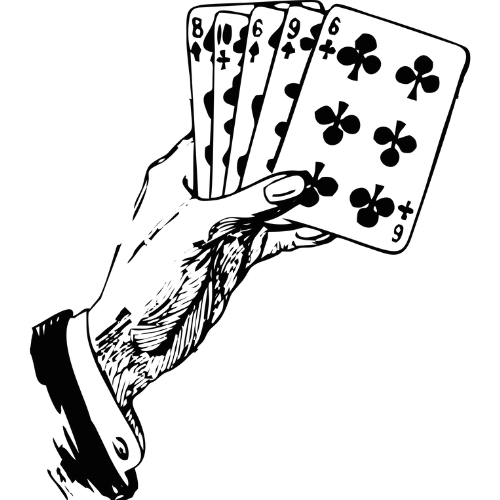
5 minute read
Bayesnianism and the Dutch Book Argument - Im Chew
Consider a 6-sided dice with equal dimensions on each side. By classical probability, you would expect to see a “1”, as likely as you would see a “6”, when you roll the dice once. With all probability as equal and perfect, the odds of receiving different outcomes would be equal. When conducting an experiment, to test the fairness of the dice, you roll the dice multiple times, and then you would find the dice will show a “2” around a sixth of the time it is rolled. This process of repeating a certain procedure to find the probability of an outcome is described as the Frequentist measure of probability.
But what happens when we want to understand the probability of an outcome which isn’t equal and symmetric (as in classical probability), or the variables are not fixed or under identical conditions (as in the Frequentist’s case). Assume you are visiting a doctor while suffering from a stomach-ache. You have visited the doctor a few times before, so they store your medical history and can make an educated guess on the condition you may have. The doctor asks you a few questions regarding your issue and as you answer, the doctor updates his hypothesis and becomes more or possible less confident in it. Once he attains the degree of confidence in his guess in consideration with the new information provided, he diagnoses you with food poisoning. The process of updating one’s beliefs with additional evidence is known as the Bayesian epistemology.
After exploring the principle of conditionalization, central to Bayesian epistemology, this article presents the key supporting argument for the principle of conditionalization through the Dutch Book argument. This article then dissects Van Fraassen’s improvements to the argument.
Bayesian epistemology
Bayesian epistemology gathers its roots from Bayes’ formula, which introduces conditionalization of a probability onto an outcome. Conditionalization tells us how to reallocate our belief when given new evidence. In a Bayesian setting, you start with a prior degree of belief attained from an outcome. As you collect more evidence, you condition your previous belief and re-evaluate your belief based on this new information.
Now, if you update your degree of belief to an extent it does not rationally match the new evidence, you are violating the Bayesian principle of probabilism. Remember, the probabilities involved in Bayesian epistemology are not as concrete as that of the Classical or Frequentist setting. Hence, it is harder to conceptualise the numeric probabilities of an outcome in a Bayesian setting in comparison to the classical and Frequentist method.
The Dutch Book Argument
The model, the Dutch Book Argument, was proposed to provide foundation for calculating probabilities and conditionalization under Bayesian settings.
The Dutch Book argument is presented by David Lewis (1999), following one main train of thought: your beliefs define your actions. In a case regarding bets as the Dutch Book, is supporting the belief, the likelihood of event A occurring is greater than event B occurring, one would put more money on placing a bet with event A. According to Lewis, one could show the conditionalization of beliefs with the additional evidence from the Dutch Book incidence. The aim here is to show the updated degree of belief of stemming from a combination of the past belief with the updated evidence. If an agent playing the Dutch Book has updated their belief to the degree it does not correspond to the degree of the evidence, then we can create a series of Dutch Book bets that will cause the agent to lose in any event if they proceed with the game (Vineberg, 2022). Hence the conditionalization of our beliefs should be based solely on the evidence. It further suggests the Dutch Book argument provides a stronger method of understanding probabilities in Bayesian epistemology.
Improving the argument
However, some philosophers feel that the assumptions, made from the Dutch Book argument, are destructive and hence invalidates the argument. Fraassen argues the Dutch Book strategy is not functional if the agent trusts initially in the game since the agent can withdraw from the game ifunfavourable evidence is discovered. In this case, Van Fraassen suggests reflection to support the principle of conditionalization in the Dutch Book argument. An agent who violates the principle of reflection is then liable to the Dutch Book betting strategy and is doomed to lose their bets in placing a side bet, preventing their own escape (Vineberg, 2022). However, more assumptions are formed. Calculating credence is already difficult but estimation of another’s belief in a game is harder. By placing a side bet on the agent’s degree of belief, the Dutch Book strategy then progresses into an impossible game of poker without solving the initial problem of the strategy. Hence the principle of reflection does not necessarily provide addition the Dutch Book argument.
The Dutch Book argument for conditionalization is hence left uncertain with many assumptions which has led philosophers (Rescorla, Howson) to improve the argument.
References
Lewis, D. (1999). Papers in Metaphysics and Epistemology Cambridge University Press. Van Fraassen, B. (1989). Laws and Symmetry Oxford University Press
Vineberg, S. (2022, Fall). Dutch Book Arguments Stanford Encyclopedia of Philosophy. Retrieved December 1, 2023, from
https://plato.stanford.edu/entries/dutchbook/#toc










